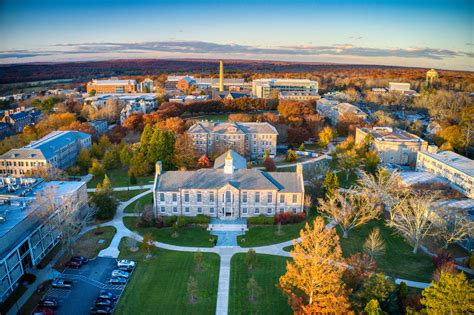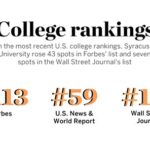
University of Rhode Island (URI) faculty are renowned for their academic excellence and cutting-edge research. Their contributions extend beyond the classroom, making a profound impact on the university, the state, and the world. From groundbreaking discoveries to inspiring students, URI faculty excel in teaching, research, and service. However, despite their remarkable achievements, many may wonder about the specifics of their work and the challenges they face. This article delves into the world of URI faculty, exploring their notable accomplishments, ongoing research, and the university’s commitment to diversity, inclusion, and support, providing a comprehensive overview of their vital role in shaping the future of URI and beyond.
Notable Accomplishments of URI Faculty
The University of Rhode Island’s (URI) faculty are renowned for their exceptional accomplishments in teaching, research, and scholarship. They have made significant contributions to various fields, including marine sciences, engineering, health sciences, and the arts.
For example, URI faculty members have been instrumental in developing innovative technologies for coastal restoration, advancing the understanding of climate change impacts, and improving the health and well-being of communities. Their expertise and dedication have earned them national and international recognition, including prestigious awards and grants.
Research and Innovation at URI
URI faculty are actively engaged in groundbreaking research that addresses global challenges and fosters innovation. The university’s research portfolio spans a wide range of disciplines, including oceanography, biotechnology, renewable energy, and human health.
URI has established several research centers and institutes that support faculty research initiatives. These centers provide state-of-the-art facilities and resources, enabling faculty to collaborate with colleagues across disciplines and push the boundaries of knowledge.
Faculty research at URI has led to the development of novel technologies, treatments, and policies that have made a positive impact on society. For instance, URI researchers have developed innovative approaches to combating ocean acidification, improving water quality, and advancing renewable energy production.
Faculty Diversity and Inclusion
URI is committed to fostering a diverse and inclusive faculty that reflects the changing demographics of the state and nation. The university has implemented several initiatives to increase the representation of underrepresented groups in academia.
URI’s Office of Faculty Diversity and Inclusion provides support and resources to faculty from diverse backgrounds. The office organizes workshops, mentoring programs, and networking opportunities to promote faculty development and success.
By embracing diversity and inclusion, URI creates a welcoming and supportive environment for all faculty members, regardless of their race, ethnicity, gender, sexual orientation, or other identities.
Teaching and Mentoring at URI
URI faculty are dedicated to providing students with an exceptional educational experience. They employ innovative teaching methods, engage in active learning, and foster critical thinking skills.
Faculty members at URI serve as mentors to undergraduate and graduate students, providing guidance and support throughout their academic journeys. They help students develop their research interests, prepare for careers, and make meaningful contributions to their communities.
URI’s commitment to teaching and mentoring has resulted in high student satisfaction rates and a strong alumni network. Graduates of URI are well-prepared to succeed in their chosen fields and make a positive impact on the world.
Faculty Governance and Leadership
URI faculty play a vital role in university governance and leadership. They participate in decision-making processes that shape the academic mission, policies, and priorities of the institution.
Faculty members serve on university committees, the Faculty Senate, and other governing bodies. They provide input on curriculum development, budget allocation, and faculty affairs.
URI’s faculty governance structure ensures that the voices of faculty are heard and that their perspectives are considered in university decision-making.
Faculty Resources and Support
URI provides a comprehensive range of resources and support services to its faculty. These services include faculty development programs, research support, and professional development opportunities.
The university’s Office of Faculty Affairs offers workshops, seminars, and consulting services to help faculty members enhance their teaching, research, and service skills.
URI also provides support for faculty research, including access to research facilities, grant writing assistance, and opportunities to collaborate with industry partners.
The Future of URI Faculty
URI is committed to supporting and developing its faculty to meet the challenges and opportunities of the future. The university is investing in faculty recruitment, retention, and professional development.
URI is also exploring innovative models of faculty engagement and collaboration. The university is fostering interdisciplinary research initiatives and promoting partnerships with industry and community organizations.
By investing in its faculty, URI is positioning itself as a leading research and teaching institution that will continue to make significant contributions to society.
Meet Some of URI’s Distinguished Faculty
URI’s faculty is home to renowned scholars, educators, and researchers who have made significant contributions to their fields. Here are a few distinguished faculty members:
- Dr. Judith Swift, Professor of Oceanography, is an expert in coastal oceanography and climate change. Her research focuses on the impacts of climate change on coastal ecosystems and communities.
- Dr. W. Mark Saltzman, Professor of Engineering, is a pioneer in the field of microelectronics and nanotechnology. His research has led to the development of novel electronic devices and materials.
- Dr. Nicole Grainger, Professor of Nursing, is a nationally recognized expert in geriatric care. Her research focuses on improving the quality of life for older adults and their caregivers.
How to Join the URI Faculty
URI is always seeking talented and dedicated faculty members to join its community. The university offers competitive salaries, benefits, and research support to attract and retain top faculty.
Individuals interested in joining the URI faculty can visit the university’s website to learn more about open positions and the application process. URI welcomes applications from candidates from diverse backgrounds and experiences.
Connect with URI Faculty
There are many ways to connect with URI faculty. You can attend public lectures, workshops, or research seminars organized by the university. You can also contact faculty members directly to inquire about their research or teaching interests.
URI faculty are actively involved in outreach and engagement activities. They collaborate with community organizations, schools, and businesses to share their expertise and make a difference in the world.
Conclusion
The University of Rhode Island’s faculty is a vibrant and dynamic community of scholars, educators, and researchers. They are committed to teaching, research, and innovation, and they make significant contributions to their disciplines and to society as a whole. By investing in its faculty, URI is positioning itself as a leading research and teaching institution that will continue to make a positive impact on the state, the nation, and the world.
Closing Word/Disclaimer
The information provided in this article is believed to be accurate and up-to-date. However, it is recommended that readers verify specific details with the University of Rhode Island or other relevant sources. The author does not assume any liability for any inaccuracies or errors in the information presented.

